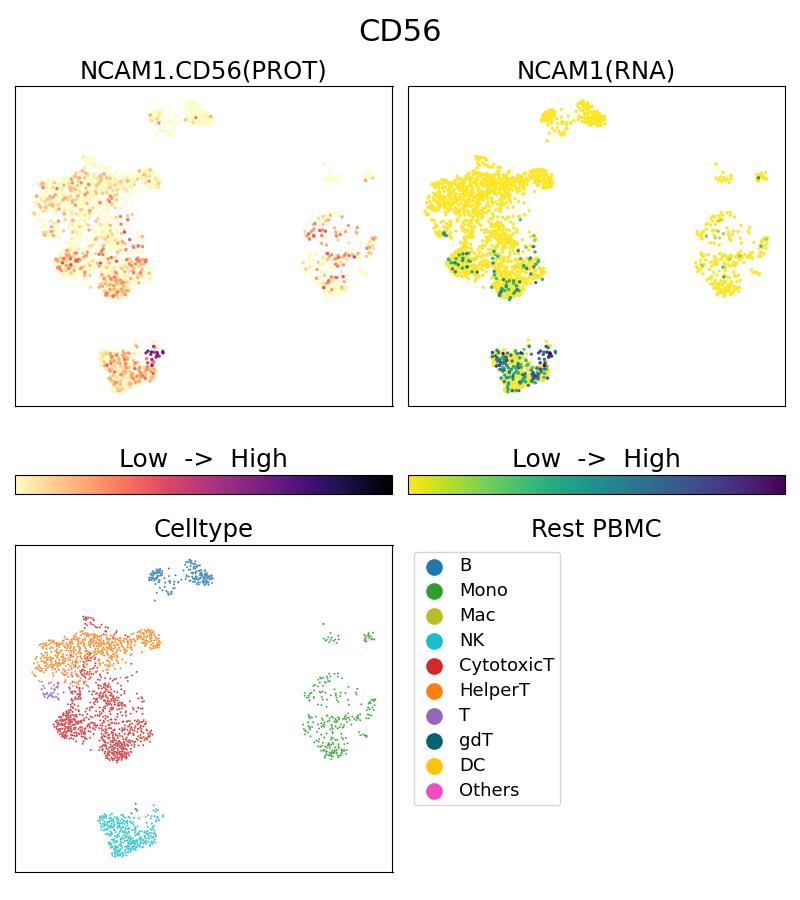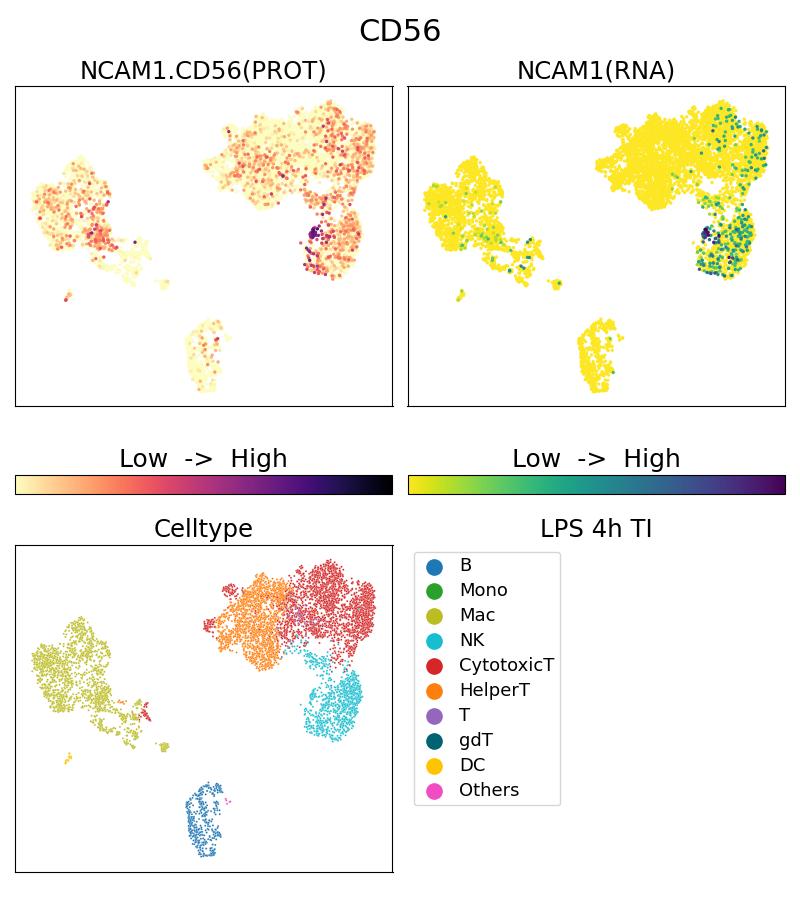Validation Data Gallery
Tested Applications
| Positive Single Cell (Intra) detected in | 10x Genomics Gene Expression Flex with Feature Barcodes and Multiplexing product. |
Recommended dilution
| Application | Dilution |
|---|---|
| SINGLE CELL (INTRA) | <0.5ug/test |
| It is recommended that this reagent should be titrated in each testing system to obtain optimal results. | |
Product Information
G65067-1-5C targets CD56 in Single Cell (Intra) applications and shows reactivity with Human samples.
| Tested Reactivity | Human |
| Host / Isotype | Mouse / IgG2a |
| Class | Oligo Conjugate |
| Type | Monoclonal |
| Immunogen | Acute myelogenous leukemia cell line KG-1 相同性解析による交差性が予測される生物種 |
| Full Name | MultiPro® 5CFLX Anti-Human CD56 (MEM-188) |
| GenBank accession number | BC014205 |
| Gene Symbol | NCAM1 |
| Gene ID (NCBI) | 4684 |
| ENSEMBL Gene ID | ENSG00000149294 |
| RRID | AB_3673908 |
| Conjugate | 5CFLX |
| Full Oligo Sequence | CGGAGATGTGTATAAGAGACAGCTATCACTTGTCGTGCCCATATAAGAAA |
| Barcode Sequence | CTATCACTTGTCGTG |
| Form | Liquid |
| UNIPROT ID | P13591 |
| Storage Buffer | PBS with 1mM EDTA and 0.09% sodium azide {{ptg:BufferTemp}}7.3 |
| Storage Conditions | 2-8°C Stable for one year after shipment. |
Background Information
Neural cell adhesion molecule 1 (NCAM1, also known as CD56) is a cell adhesion glycoprotein of the immunoglobulin (Ig) superfamily. It is a multifunction protein involved in synaptic plasticity, neurodevelopment, and neurogenesis. NCAM1 is expressed on human neurons, glial cells, skeletal muscle cells, NK cells and a subset of T cells, and the expression is observed in a wide variety of human tumors, including myeloma, myeloid leukemia, neuroendocrine tumors, Wilms' tumor, neuroblastoma, and NK/T cell lymphomas.
Protocols
| MultiPro™ Cell Surface and Intracellular Staining Protocol | Download protocol |
| 10x Genomics Cell Surface Protein Only Staining Protocol | Download protocol |

